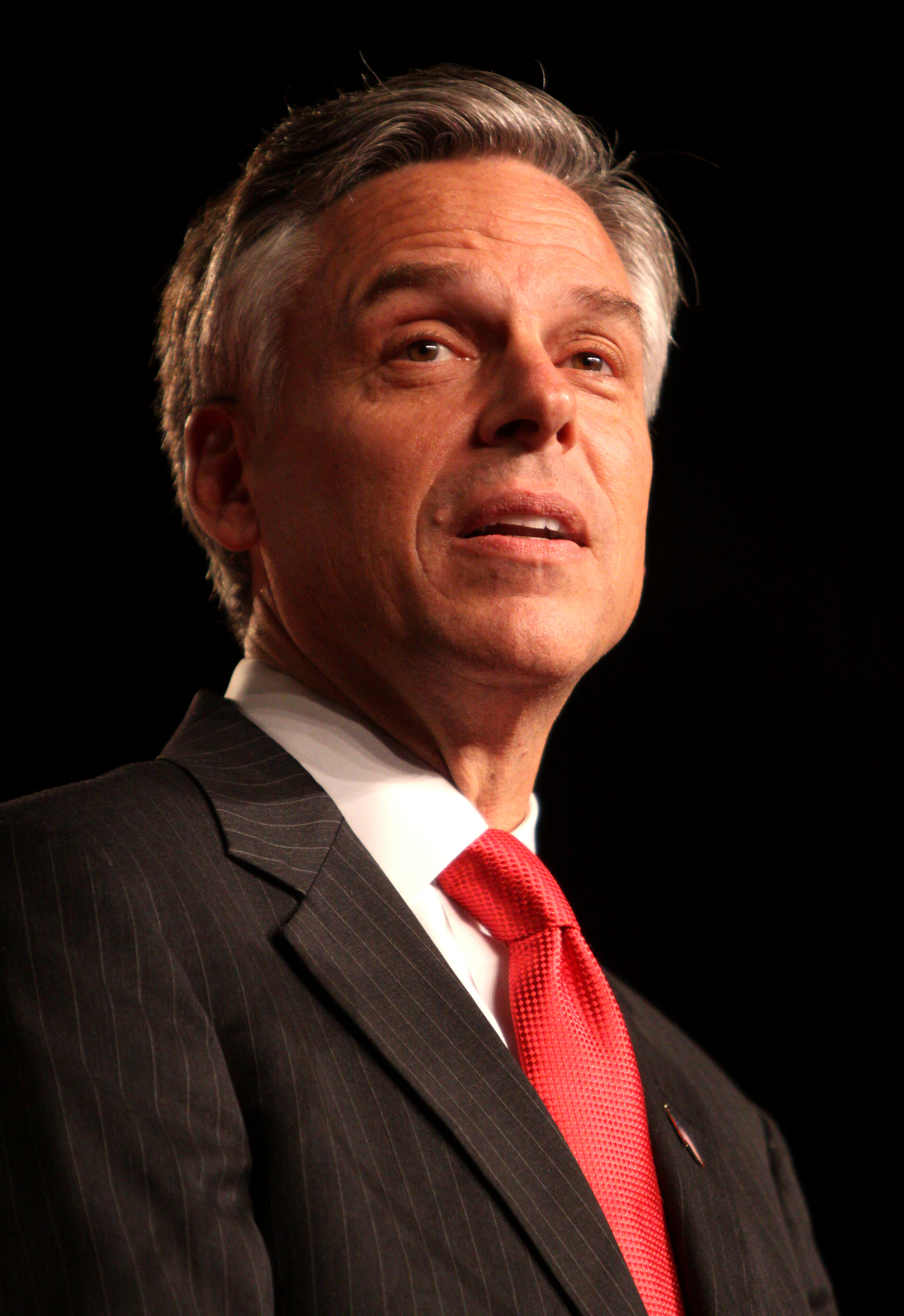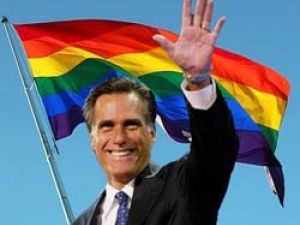Jon Huntsman, a former governor of my home state, sure does look like an opportunist right now. After losing the battle to become the business-friendly Mormon presidential candidate (admittedly one he should have won) Huntsman emerged weakened. He had sullied his image as a high-minded, “above the fray” (as if this were possible) statesman through zealous particiption in the low-level discourse meant to disdain, or more accurately demonize, his most recent employer in the primaries. So, Huntsman did the only wise thing there was to do. He laid low.
This, of course, until last week when Huntsman published a column in The American Conservative entitled “Marriage Equality is a Conservative Cause”. Right off the bat, material for skepticism is hardly scarce Without a doubt that “is” ought to be a “should” or, even better, a “has definitely not been but if a major discursive shift and a popular wave of empathy and reduction in bigotry occurs could be”. Furthermore, Huntsman’s column comes well within a recent tide of “changing minds” and “evolving views” from GOP people on the issue of gay marriage (and in line with a veritable tsunami of demographic support for the cause), Huntsman’s position isn’t entirely abnormal. Therefore, it is almost inevitable that a chorus will arise against Huntsman and his cohorts, deriding them of opportunism, intellectual inconsistency, short-term memory loss, pandering, and trickery. These claims likely contain more than a kernel of truth.
Nonetheless, Huntsman has a high profile, and, despite the cynics and the naysayers, has done something notable for our time which is to publically change his opinion (Huntsman was opposed to gay marriage though not to civil unions during the 2012 primaries). For this reason, his column deserves to be given a fair shake.
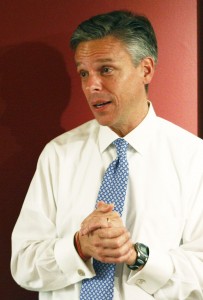
Huntsman’s goal for this column is quite simple. He wants to say that conservatives and the GOP need to ditch the anti-gay marriage bit because its both antithetical to their more fundamental commitment to the neo-liberal value set represented by the tandem rhetorical devices of “the free-market” and “individual liberty” and deleterious to their ability to defend these values against the “rent-seeking, special business interests in politics” (as if these weren’t present in the Republican party).
Huntsman relies on several principle argument strategies. He does so mainly rhetorically, refraining from substantiating any of the logic behind these. Of course, if deep critical reflection were a universal requirement for discourse to be interesting, we would have not very much politics to talk about.
The first of Huntsman’s strategies is to name-drop. “Hey fellow conservatives, we are the party of Lincoln, Roosevelt, and Reagan!” The desired effect here is to shame the small-minded bigotry laden in the opposition to legalizing gay marriage as myopic and destined for retrospective historical moral excoriation. Nevermind that it is likely, if not certain, that all three of these men were no friends of the gays. This is no matter, because in invoking these names of well-regarded politicians (Reagan being the outlier) Huntsman is trying to set conservatives out of the terrain of “partisan politics”. We are the transcendent party of history, you liberals are the politicians of the stagnant now.
Important to highlight here is the underlying assumption that there exists an economistic mechanism by which ideas compete for purchase amongst the general public. There must be demand for tolerance, as Huntsman sees it, because people suddenly aren’t keen on bullying the gays anymore. Sorry fellow conservatives, if we want to WIN (and we sure do) we’re going to have to provide this “idea-good”.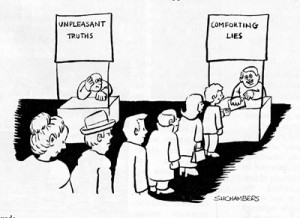
The issue is that this idea of the “marketplace of ideas” is a useful heuristic but factually absolute garbage. First there is strong sociological evidence to suggest that no such mechanism exists. The process (if it even has the systematic coherence to warrant this title) of ideational structuring is tremendously complex and bares no resemblance to the simplistic supply-demand exchange in which politicians seek to operate off the ideas that “the market” or, society, offers them. This conception opportunistically ignores the fact that “ideas”, especially political ones, are almost never sterile, innocuous empirical postulates about how life might succeed optimally.
What are these ideas that Huntsman mentions about exactly? Nothing short of how society ought to be organized and what principles it must hold most valid! This kind of “idea” is anything but an idea. Instead, it is and always will be (above the futile and hypocritical cries of the technocrats) a particular morally-charged, necessarily contentious, and always political vision that asserts a way of life as ideal and correct.
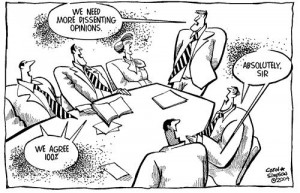 Instead of being born in a corporate R&D lab and rigorously tested by control groups, these “ideas” are borne out of deeply ingrained cultural beliefs and value sets whose genealogies are messy and morally compromised rather than being sleek, deus ex machina creations. An anti-gay bias doesn’t come out of nowhere. It emanates from the normative values borne out of religio-ethical worldview that sees gay marriage fundamentally opposed to its own moral code. It is no immaculately conceived bias. No decision to buy or sell is anywhere in sight.
Instead of being born in a corporate R&D lab and rigorously tested by control groups, these “ideas” are borne out of deeply ingrained cultural beliefs and value sets whose genealogies are messy and morally compromised rather than being sleek, deus ex machina creations. An anti-gay bias doesn’t come out of nowhere. It emanates from the normative values borne out of religio-ethical worldview that sees gay marriage fundamentally opposed to its own moral code. It is no immaculately conceived bias. No decision to buy or sell is anywhere in sight.
Furthermore, this idea of the “marketplace of ideas” ignores the fact that politicians are themselves inextricably involved in these very same sets of inherited values. Politicians whose self-conception revolves around an image of themselves as a crusader for “traditional” (read: anti-gay) values aren’t going to respond to market incentive. They are in politics precisely because of these value sets. To harbor such an expectation is absurd.
Nonetheless, if we are to understand Huntsman’s argument as saying that anti-gay bias is condemning conservatives and the GOP to a dwindling demographic that will continue to lose elections, he is spot on. He’s also right to appeal to this rhetoric of the “free market”, for despite its logic being hugely contradictory to the “culturally conservative” impetus for anti-gay bias, it holds unquestioned rhetorical purchase. It can change minds. After all, conservatives like to WIN.
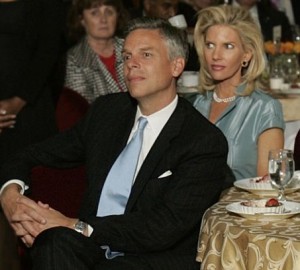 Finally, the third major rhetorical line is the “Right to love like I do” bit. This is where he mentions his wife and his solid marriage of 29 years, and says I love her SOOOO much that maybe I should be able to empathize and see that gay people can love their spouses too. Yes, it’s certainly a self-important argument that to a large extent is about creating the iconic portrait of a man who loves his wife, but nonetheless he is right to make it and it is convincing. This empathetic recognition is the moral high point of the column, and by no coincidence, the most persuasive part as well. Of course, it should be noted that this is to a tee the exact same argument that Obama made some months ago when he came out of the closet of “evolving ideas” to support legalizing gay marriage.
Finally, the third major rhetorical line is the “Right to love like I do” bit. This is where he mentions his wife and his solid marriage of 29 years, and says I love her SOOOO much that maybe I should be able to empathize and see that gay people can love their spouses too. Yes, it’s certainly a self-important argument that to a large extent is about creating the iconic portrait of a man who loves his wife, but nonetheless he is right to make it and it is convincing. This empathetic recognition is the moral high point of the column, and by no coincidence, the most persuasive part as well. Of course, it should be noted that this is to a tee the exact same argument that Obama made some months ago when he came out of the closet of “evolving ideas” to support legalizing gay marriage.
Surely, Huntsman wants us to believe it’s all about the “reframing” from an issue of religious adherence to an issue of preference for individual liberty. As such it is a request for a clarification of priority not a change in principle. He sounds like an awfully good guy here. He’s post-politics, loves his family, respects the gay others, etc… We ought to buy this thing, right? We ought to believe that Huntsman is down the with gays and sticking up to the forces of bigotry in conservative politics?
No.
On further inspection, the column undermines this image.
Most saliently is the problem that if you read a little closer, Huntsman makes no real break with the politics and moral viewpoints of his compromised party despite reaping the benefits of pretending to transcend these. I refer here to the subtle but potent “freedom of conscience” section. Sure, Huntsman is just trying to cover his bases here, but the problem is that he effectively undermines the entire normative shift that a move towards tolerance might represent. Without this moral courage his argument is purely economistic and opportunistic (change our views to get voters).
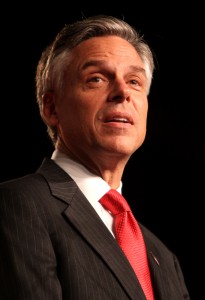 What does Huntsman mean when he writes “Freedom of Conscience”? This nothing more than a clever euphemistic repacking of the age-old “freedom to practice my religion” which itself is a classic euphemism for the “freedom to carry out the bigotries and prejudices sanctioned by my religious faith in a social sphere”. Huntsman is quick to concede that religious institutions don’t have to recognize these gay marriages. Too quick. Don’t worry evangelicals, he seems to say, this won’t set a normative precedent for the fact that discrimination against gay people is universally deplorable.
What does Huntsman mean when he writes “Freedom of Conscience”? This nothing more than a clever euphemistic repacking of the age-old “freedom to practice my religion” which itself is a classic euphemism for the “freedom to carry out the bigotries and prejudices sanctioned by my religious faith in a social sphere”. Huntsman is quick to concede that religious institutions don’t have to recognize these gay marriages. Too quick. Don’t worry evangelicals, he seems to say, this won’t set a normative precedent for the fact that discrimination against gay people is universally deplorable.
At first, this viewpoint could be read as tolerant or pluralist which is to say the “I have my opinions, you have yours” line. It is. Nonetheless, we must be absolutely clear that Huntsman is no longer making this bold point about gay marriage being okay with conservatives. It’s only okay with conservatives like him which is to say a wealthy, well-educated minority with strong incentives for “free market” economic arrangements. Marriage equality is not a conservative cause, it’s a neo-liberal cause.
Yet here is where my critique ends and my pragmatism begins.
In the end, though Huntsman’s column might be sophistic, self-important, and far less bold than it claims to be, it is still meaningful. “It’s opportunistic” the opponents will charge. “So what!”, I reply. Should we, the advocates of gay marriage equality, spend our time bashing Huntsman’s motives and strategies? To what end does this serve other than to prove our critical acumen and show that we too can stand on ceremony?
Let our critical suspicion not distract us from the source of its relevance, which is the desire for meaningful change. We are looking for an imaginative reconstruction of our social compact that will be based on a more inclusive and tolerant spirit. Therefore, I pray that the moralists can forgive me when I say let Huntsman’s intentions be damned. If this means gay marriage will be legalized, I commend former Utah Governor Huntsman on his recent column.
